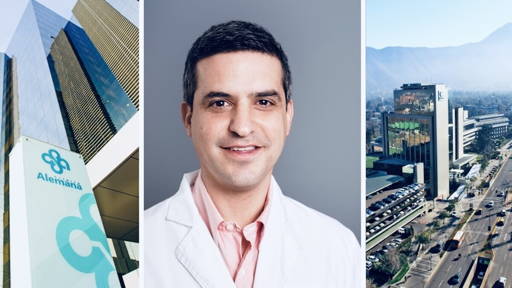AI can help reduce many problems in the healthcare sector. The technology can reduce administrative burdens (think of summaries of consultations or nursing transfers), it can speed up or even improve diagnostics. And with the emergence of, for example, agentic AI (AI agents that perform certain tasks independently), even more becomes possible. However, healthcare innovator Lucien Engelen emphasises in De Telegraaf newspaper that we should be wary of placing too much faith in AI, of adopting it too quickly without thinking carefully about where AI can really make a contribution, and of dangers such as bias and other ethical aspects of AI use.
After initial hesitation, the healthcare sector seems to be increasingly embracing the possibilities of AI. For example, more and more hospitals see AI as a solution to reduce administrative burdens and workload. A well-known – but by no means the only – example: the UMCG and the ETZ in Tilburg have been working together for some time to use AI to create patient summaries. The UMCG is also working with AI applications to diagnose conditions earlier. The JBZ (Den Bosch) is also conducting pilots with AI speech recognition for consultation summaries. AI is also becoming increasingly common in the field of diagnostics. Examples include the use of AI to detect heart failure earlier (as early as 2022) or, more recently, to optimise insulin dosing after heart surgery.
Former Minister of Health Fleur Agema was convinced that AI could have a major impact on reducing the impact of staff shortages in healthcare. She recently launched a plan to invest a total of 800 million euros in AI and other innovations in healthcare over the next two years. Among other things, this money will be used to implement solutions that contribute to improving patient care. The focus is primarily on reducing the time healthcare workers spend on administrative tasks. The time saved can be used to meet the growing demand for healthcare, even with the current – and expected – staff shortages. Incidentally, it is unclear whether this initiative will go ahead after the fall of the cabinet and the departure of the PVV minister.
Both sides of the AI coin
All well and good, but Lucien Engelen wants to highlight both sides of the coin. As a healthcare innovator, he has been around for a long time and has seen several hypes come and go. He is convinced that AI can help the healthcare sector, but also warns that healthcare should not get too caught up in the hype. ‘We must prevent everyone from thinking that AI will solve all the problems in healthcare tomorrow,’ he says in De Telegraaf.
AI can speed up many things, but additional research is still needed to substantiate medical breakthroughs, for example. In this context, Engelen points to promises of much faster development of cancer treatments through the use of AI. That's great, but extensive medical studies are still needed to prove that new treatments and technologies are safe for use in humans. That won't suddenly change because of AI. Nor does the use of AI to reduce workload mean that jobs can be cut, because more and more people are needed. AI should therefore not be used to save money, but to free up hours that can be used elsewhere.
Invest first, then earn
Moreover, according to Engelen, substantial investments must first be made in AI before any return on investment can be expected. This applies to AI developers, particularly in the US, but also to hospitals and other healthcare providers that develop specific AI applications. These investments in infrastructure, staff training, implementation, security and certification are often underestimated.
Engelen also refers to well-known challenges such as digital autonomy and data sovereignty. It was recently announced that many governments are still very dependent on American providers such as Google, Microsoft or IBM for data storage in a cloud environment. Certainly when it comes to medical data, it is important to carefully assess the risks of data storage outside the Netherlands or the EU, although Engelen sees increasing awareness in this area.
AI and ethics
And then there is the field of ethics: should everything that is possible with AI actually be done? What are the dangers of AI when the data used to train an algorithm contains certain biases? Think of the many studies in which men are overrepresented, while clinical pictures and the effects of medication can vary greatly between genders. Not everything that is technologically possible should automatically be applied, Engelen emphasises. ‘Who will decide whether someone is entitled to expensive AI treatment that only adds a few months to their life? These are questions we need to ask now.’
Engelen emphasises that he is certainly not anti-AI. On the contrary, he has been a technology enthusiast for years, and that also applies to the possibilities of AI. But, he stresses, even something as seemingly revolutionary as AI is ultimately just one piece of the puzzle in a broader approach. The need to invest primarily in areas such as prevention, a healthy lifestyle and behavioural change remains great. Prevention has a much greater impact on healthcare than cure.
Want to know more about the use and impact of AI? In edition 3 of ICT&health (to be published on 13 June), we will be discussing this topic in various articles. These will cover topics such as the need for AI literacy among healthcare personnel, the usefulness of data-driven working in patient triage, and the importance of a long-term strategy to make AI a structural success in healthcare.









